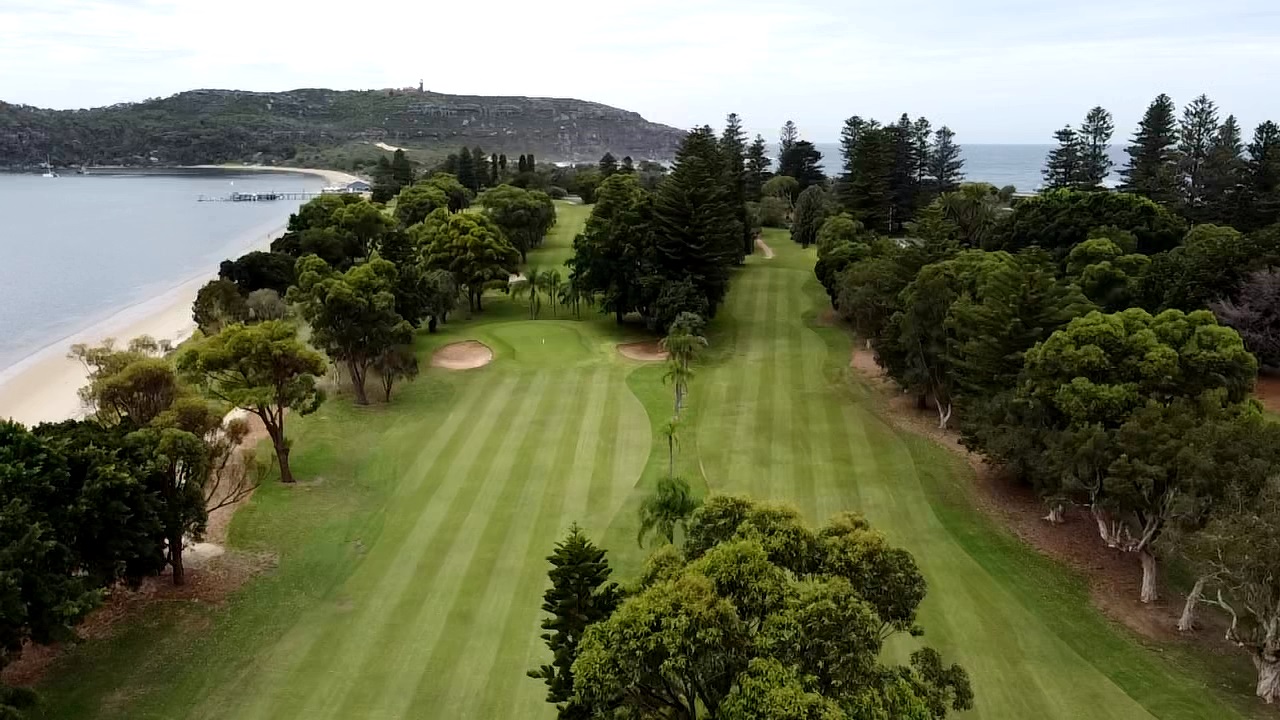NSW Government updates COVID settings and makes Rapid Antigen Tests free + community venues updates

December 23, 2021
The NSW Government is taking precautionary steps to maintain its safe and measured approach as we continue to learn to live with COVID.
The following adjustments to the NSW Government's pandemic settings will come into effect:
From 12.01am Friday, 24 December:
Masks will be compulsory in all indoor non-residential settings, including for hospitality staff and in offices, unless eating or drinking.
From 12.01am Monday, 27 December 2021:
- QR code check-ins will be compulsory, including for hospitality and retail and
- Hospitality venues, including pubs, clubs, restaurants and cafes will move to 1 person per 2 sqm rule indoors, with no density limit for outdoor settings.
All settings will remain in place until Wednesday, 27 January 2022.
Extending QR check-in requirements will remind people that if they receive a notification they should be tested if they feel unwell. They should also get tested if they are directed by NSW Health or if they have symptoms.
Further to these measures, the Government is asking people to reduce mingling where they can including when eating and drinking, work from home where possible and hold events outside.
The NSW Government will continue to monitor these settings.
The NSW Government will also procure Rapid-Antigen Test kits and make them available for free to people across the State, to give additional options to people and allow those who need to get a PCR test to do so.
Premier Dominic Perrottet said these measures would help take the pressure off our health system and keep the community safe until more people could get their booster shots.
"We said we would tailor our settings as the situation evolved and these steps will help take the pressure of our health system, so the people who need care can access it," Mr Perrottet said.
"Our frontline health workers have done an enormous job keeping us safe over the past two years and we can't thank them enough.
"Vaccination remains the key to keeping people safe and out of hospital. It is vital people continue to roll up their sleeves to get vaccinated and receive their boosters."
Health Minister Brad Hazzard thanked people for continuing to come forward in large numbers to get tested and urged everyone to follow the restrictions.
"We thank people for coming out in large numbers to get tested but we need to make sure that tests are available for people who really need it," Mr Hazzard said.
"If you don't have any symptoms, please don't get a test just for the sake of it. The best thing people can do is follow the rules outlined today. The health and safety of the community continues to be the highest priority.
"I want to again thank NSW Health for the work they are doing in response to the pandemic."
Mr. Hazzard's comments come atop an announcement made by Premier Dominic Perrottet during this afternoon's press conference that 1500 health workers have been impacted by the recent rise in transmissions, most of which are the Omicron variant.
Self-isolation
The Public Health (COVID-19 Self-Isolation) Order (No 4) 2021 (no 4 Order) requires persons diagnosed with COVID-19 and close contacts of persons diagnosed with COVID-19 to self-isolate and specifies requirements for self-isolation including duration and location.
If you have tested positive for COVID-19, you must immediately:
- Self-isolate in your home
- Tell the following people that you have tested positive for COVID-19:
- people staying at your house
- friends and other people you have met socially such as friends you had dinner with, people you met up with at a pub or club or social function, either:
- from 2 days before you got sick until now, or
- if you had no symptoms, from 2 days before your test until now.
- your manager at work
- the head of the education facility you attend or relevant staff member.
You do not have to tell your contacts if you are too unwell, or you feel it is not safe to do so.
NSW Health will contact you as soon as possible by text message. If you are having severe headaches or dizziness, difficulty breathing or have pain in your chest, call Triple Zero (000) straight away and tell the ambulance staff that you have been diagnosed with COVID-19.
People with COVID-19 must self-isolate at home until medically cleared, even if fully vaccinated. You are not allowed to leave your home except for urgent medical care or in an emergency (including to avoid injury or escape risk of harm from domestic violence). Please see the Self-Isolation Guideline for further information on how to self-isolate.
A close contact referred to in subclause (1)(a) or (b) or (2)(a) must reside at the residence or other suitable place for the period of time, not exceeding the following period, determined by an authorised contact tracer and notified in writing to the close contact—
(a) for a close contact who was a fully vaccinated person at the identified time of contact—7 days,
(b) for other close contacts—14 days
Most people can manage COVID-19 at home, with some simple advice. If you are under 50 years of age, have had 2 doses of COVID-19 vaccine, do not suffer from any chronic conditions and are not pregnant you can safely manage COVID-19 at home.
If you are self-managing COVID-19 you are able to leave self-isolation 10 days after your positive test, as long as you have had no symptoms for 72 hours. You will receive a SMS with this information.
The NSW Health advice for managing COVID-19 at home is listed here.
The self-isolation rules are enforceable under the Public Health (COVID-19 Self-Isolation) Order. Not following the rules is a criminal offence and attracts heavy penalties.
For individuals, the maximum penalty is $11,000, 6 months in prison, or both with a further $5,500 fine for each day the offence continues.
The NSW Police may also issue on-the-spot fines to individuals of:
- $5000 for failure to comply with obligations to self-isolate if you are diagnosed with COVID-19, including staying at home or in hospital, as determined by a doctor, nurse or paramedic; providing details of contact with other persons and places you have visited; and complying with NSW Health guidelines
- $5000 for failure to comply with obligations to self-isolate if you are a close contact of a person diagnosed with COVID-19, including staying at home up to 14 days, as determined by a doctor, nurse or paramedic; submitting to testing for COVID-19; and complying with NSW Health guidelines.
- For corporations on-the-spot fines of $10,000 apply for failure to comply with obligations relating to self-isolation.
Release and recovery from COVID-19
- A person who has had COVID-19 is released from isolation (also known as ‘medically cleared’) when they are no longer infectious. This means they cannot pass COVID-19 on to other people.
- Most people with COVID-19 get better within a few weeks but some people may have symptoms that last much longer.
- Keep a copy of your medical clearance notice.
- Vaccination is strongly recommended to protect you from getting COVID-19 again. There is no need to delay vaccination once you have fully recovered from COVID-19. Talk to your doctor about what is best for you.
NSW Ambulance is also asking people to think prior to calling or help with a rise in this amounting to someone ringing the triple 000 number every 24 seconds with one person calling, in one instance, because they couldn't sleep.
NSW Ambulance Message
HAVE A THINK BEFORE CALLING
Is this an emergency? Dial Triple Zero (000)
If you or someone is sick but it is not a life-threatening emergency and you do not require immediate medical attention, consider visiting a GP or calling Healthdirect Australia – 1800 022 222
Healthdirect is a 24-hour health advice line providing advice on your health issues and will point you in the right direction of what to do next.
Healthdirect Australia can be used when:
- someone is sick and you're not sure what to do
- you want expert advice about a health issue and what to do next
- you need to know where to find after-hours health services or pharmacies
For more please visit: www.ambulance.nsw.gov.au/our-services/emergency-services/when-its-not-an-emergency
On December 18, 2021 NSW Ambulance welcomed 24 paramedics to the service and 26 call takers.
This group is particularly special as the majority have come up through the ranks having previously worked as call-takers and dispatchers, even in NSW Ambulance's Make Ready teams.
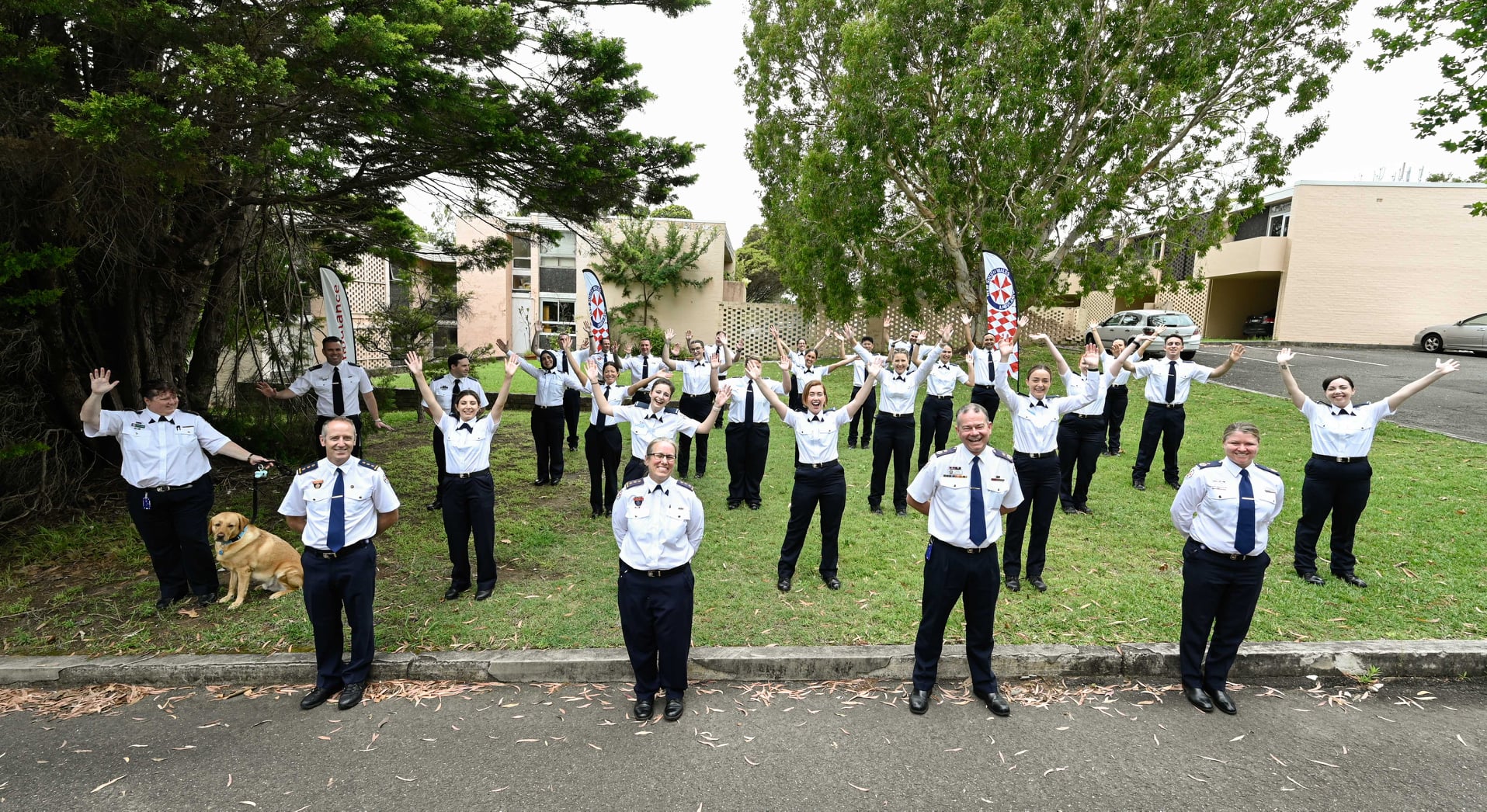
NSW Ambulance photo
NSW Health: NSW COVID-19 update – Thursday 23 December 2021
In the 24-hour reporting period to 8pm last night:
- - 5,715 total new cases
- - 347 people in hospital
- - 45 people in ICU
- - 1 death
- 94.9% of people aged 16+ have had one dose of a COVID-19 vaccine
- 93.5% of people aged 16+ have had two doses of a COVID-19 vaccine
- 81.5% of people aged 12-15 have had one dose of a COVID-19 vaccine
- 78.2% of people aged 12-15 have had two doses of a COVID-19 vaccine
- 160,471 tests
NSW Health: Detailed Update - December 23, 2021
Across NSW, 94.9 per cent of people aged 16 and over have received a first dose of a COVID-19 vaccine, and 93.5 per cent have received two doses.
Of the people aged 12 to 15, 81.5 per cent have received a first dose of COVID-19 vaccine, and 78.2 per cent have received two doses.
The total number of vaccines administered in NSW is now 13,425,174 with 4,307,728 doses administered by NSW Health to 8pm last night and 9,117,446 administered by the GP network, pharmacies and other providers to 11.59pm on Tuesday 21 December 2021.
NSW Health encourages everyone who is eligible to book into a NSW Health vaccination clinic or another provider without delay through the COVID-19 vaccine clinic finder.
Everyone aged 18 years and older may now receive a booster five months after receiving their second dose of COVID-19 vaccine. We urge people to get their booster dose as soon as they are eligible, to best protect yourself, your loved ones and the community from the ongoing transmission of COVID-19. If you are due for a booster over the Christmas/New Year period, you can have it a little earlier.
We also strongly recommend that people aged 12 years and over who are severely immunocompromised have a third primary dose of vaccine from two months after their second dose. Talk to your GP for more advice.
Sadly, NSW Health is reporting the death of a man in his 40s from western Sydney who died at Westmead Hospital. He was not vaccinated and had underlying health conditions.
There are currently 347 COVID-19 cases admitted to hospital, with 45 people in intensive care, 13 of whom require ventilation.
There were 160,471 COVID-19 tests reported to 8pm last night, compared with the previous day’s total of 151,443.
NSW recorded 5,715 new cases of COVID-19 in the 24 hours to 8pm last night.
Twenty-nine COVID-19 cases have been excluded following further investigation, bringing the total number of cases in NSW since the beginning of the pandemic to 112,307.
NSW Health continues to remind everyone to practise COVID-safe behaviours, including recommending people wear a mask in settings where they cannot physically distance.
Around a quarter of people exposed to COVID-19 may still develop their infection after seven days. For the next seven days, close contacts should exercise caution and not enter a high-risk setting, should avoid large indoor gatherings, use a rapid antigen test if coming into contact with vulnerable people.
Get tested and stay home if you have the mildest of symptoms. Do not visit family, friends or go to social events if you are unwell. Wash and sanitise your hands regularly.
If you do not have symptoms, consider using a rapid antigen test before going out.
Of the 5,715 cases reported to 8pm last night, 1,186 are from South Eastern Sydney LHD, 976 are from Hunter New England Local Health District (LHD), 841 are from Sydney LHD, 704 are from South Western Sydney LHD, 691 are from Western Sydney LHD, 514 are from Northern Sydney LHD, 199 are from Central Coast LHD, 136 are from Nepean Blue Mountains LHD, 123 are from Illawarra Shoalhaven LHD, 102 are from Northern NSW LHD, 65 are from Western NSW LHD, 59 are from Mid North Coast LHD, 23 are from Murrumbidgee LHD, 14 are from Southern NSW LHD, five are from Far West LHD, one is from a correctional setting and 76 are yet to be assigned to an LHD.
If you are directed to get tested for COVID 19 or self-isolate at any time, you must follow the self-isolation rules.
If you have any COVID-19 symptoms, no matter how mild, get tested immediately and self-isolate until you receive a negative test result.
There are more than 450 COVID-19 testing locations across NSW, many of which are open seven days a week. To find your nearest clinic visit COVID-19 clinics or contact your GP.
COVID-19 testing clinics: Pittwater
Mona Vale Drive-through Clinic - Gate 2, Mona Vale Hospital, 18 Coronation Street, Mona Vale
Warriewood Clinical Labs Pathology Drive-through Clinic - Warringah Rugby Club, 1472 Pittwater Road, Warriewood
Newport Clinical Labs Pathology Walk-in Clinic - Room1, Unit 1 First Floor, 354 Barrenjoey Road, Newport
Newport Clinical Labs Pathology Drive-through Clinic - Porter Reserve Car park, Burke St, Newport
Avalon Laverty Pathology Drive-through and Walk-in Clinic - Careel Bay Playing Fields Car Park, Barrenjoey Road, Avalon Beach
Sourced from: www.nsw.gov.au/covid-19/stay-safe/testing/clinics
Modified COVID-19 isolation guidelines for healthcare staff
December 27, 2021
NSW Health has revised its approach to isolation guidelines for healthcare staff exposed to COVID-19 in the community or the workplace.
Healthcare workers essential to service delivery, who are close contacts of a COVID-19 case in the household will now be able to leave isolation and safely return to work after seven days. Previously these staff were excluded from the workplace for 14 days due to the requirement for close contacts to avoid high risk settings, such as hospitals, for a further seven days.
Before returning to work, staff will be required to have a negative PCR test on day six and to follow an approved risk assessment plan.
The risk assessment plan requires daily COVID-19 rapid antigen testing, COVID-safe protocols in the workplace and appropriate and effective use of personal protective equipment, including masks at all times while at work.
Other changes to reduce the number of days healthcare workers are excluded from the workplace include:
- those who are exposed in the community by a friend or family member in a social setting will also be able to return to work following a negative PCR test on day two; and
- those exposed in the workplace will have their isolation and testing requirements determined by a workplace risk assessment.
Deputy Secretary Nigel Lyons said the changes ensure safety for healthcare workers and patients while maintaining capacity within the health system.
"Healthcare workers are the most vital workers needed in a pandemic, and the safety of staff working at NSW Health is of the utmost importance," Dr Lyons said.
"These changes are possible because healthcare workers are required to be vaccinated, many have recently received booster doses, they are trained in infection control practices, they wear PPE in the workplace, and they have access to rapid testing."
NSW Health has the largest and most skilled health workforce in the country with more than 140,000 dedicated staff. Due to the rising number of COVID-19 cases in NSW, approximately 2,000 Healthcare workers are furloughed. These changes will result in a substantial number of staff being back to work within a week.
All Local Health Districts have well developed workforce surge and demand management plans in place, and our networked hospital system ensures patients can be transferred or redirected to other hospitals where necessary, including private hospitals.
The safety of staff working at NSW Health is of the utmost importance. Accordingly, the NSW Government has invested heavily in equipment, materials and training to improve infection prevention and control to ensure appropriate protection for healthcare staff, patients and visitors.
The revised Health Care Worker COVID-19 Exposure Risk Assessment Matrix will be applied to staff who are exposed to COVID-19 in a NSW health care facility.
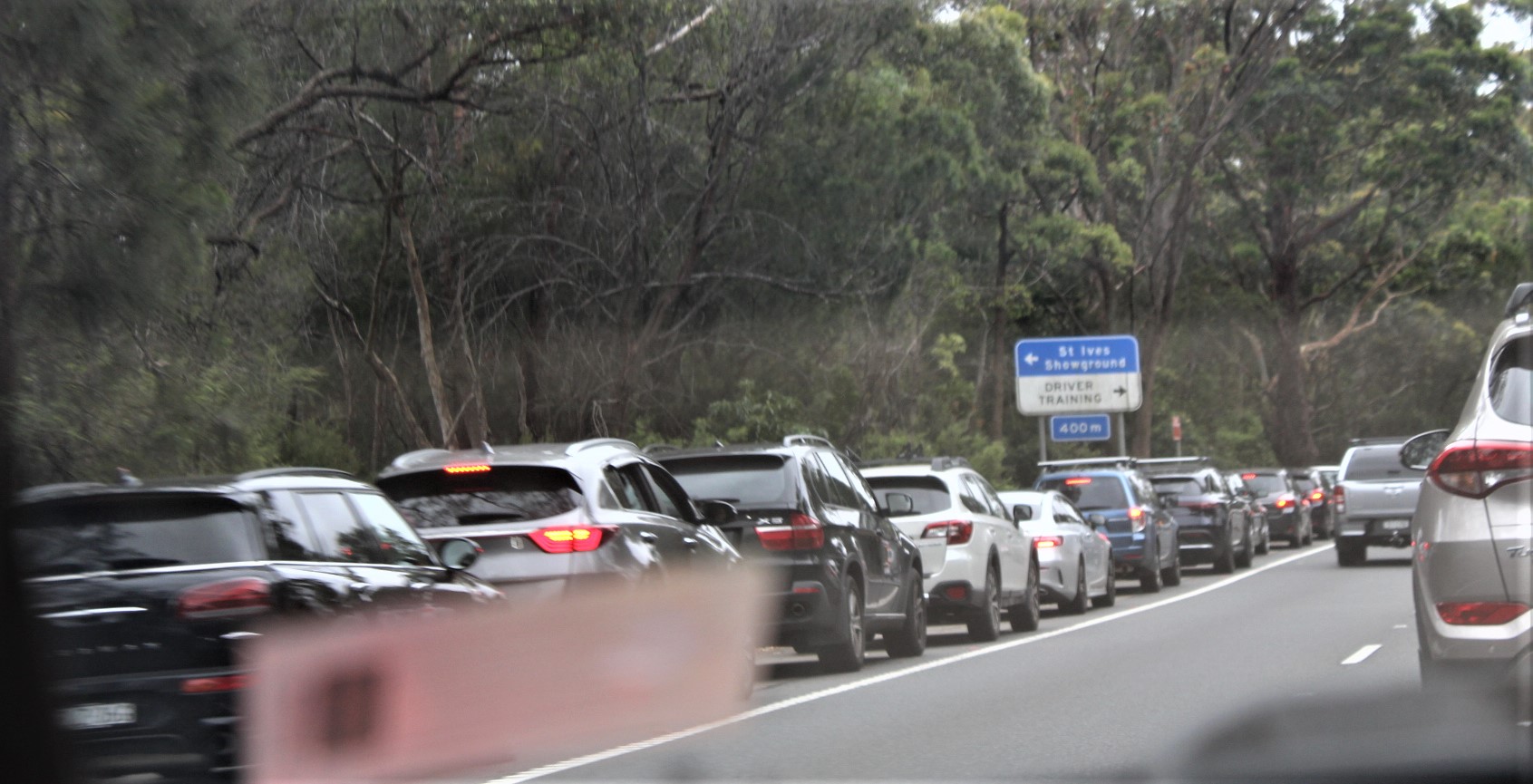
Photo: Mona Vale Road, St Ives Showgrounds Testing Clinic, December 27, 2021. Line stretches from end of urban area at St Ives Wildflower Park to entrance. Image by A J Guesdon, Pittwater Online News
COVID-19 (Coronavirus) statistics: 27 December 2021
by NSW Health
To Thursday 23 December 2021 across NSW, 95 per cent of people aged 16 and over have received a first dose of a COVID-19 vaccine, and 93.5 per cent have received two doses.
Of the people aged 12 to 15, 81.6 per cent have received a first dose of COVID-19 vaccine, and 78.3 per cent have received two doses.
The NSW Health vaccination clinic at Sydney Olympic Park was open on the Boxing Day Public Holiday. The total number of vaccines administered in NSW is now 13,536,154 with 4,330,422 administered by NSW Health to 8pm last night and 9,205,732 administered by the GP network, pharmacies and other providers to 11.59pm on Thursday 23 December 2021.
NSW Health encourages everyone who is eligible to book into a NSW Health vaccination clinic or another provider without delay through the COVID-19 vaccine clinic finder.
Everyone aged 18 years and older may now receive a booster after receiving their second dose of COVID-19 vaccine. We urge people to get their booster dose as soon as they are eligible, to best protect yourself, your loved ones and the community from the ongoing transmission of COVID-19. If you are due for a booster over the Christmas/New Year period, you can have it a little earlier.
We also strongly recommend that people aged 12 years and over who are severely immunocompromised have a third primary dose of vaccine from two months after their second dose. Talk to your GP for more advice.
Sadly, NSW Health is today reporting the deaths of three people.
A man in his 80s from western Sydney died at Westmead Hospital. The man was a resident of the Uniting Lilian Wells aged care facility in North Parramatta, where he acquired his infection. He had received two doses of a COVID-19 vaccine and had underlying health conditions. This is the first known death in NSW linked to the Omicron variant of concern.
A woman in her 90s from the Central Coast died at Wyong Hospital. She had received two doses of a COVID-19 vaccine and had underlying health conditions.
A man in his 80s from Sydney's inner west died at Royal Prince Alfred Hospital. He had had received two doses of a COVID-19 vaccine and had underlying health conditions.
NSW Health expresses its sincere condolences to their loved ones.
There are currently 520 COVID-19 cases admitted to hospital, with 55 people in intensive care, 17 of whom require ventilation.
There were 97,241 COVID-19 tests reported to 8pm last night, compared with the previous day's total of 109,545.
NSW recorded 6,324 new cases of COVID-19 in the 24 hours to 8pm last night.
Fourteen COVID-19 cases have been excluded following further investigation, bringing the total number of cases in NSW since the beginning of the pandemic to 136,822.
Cases Count
Confirmed cases (including interstate residents in NSW health care facilities) 136,822
Deaths (in NSW from confirmed cases) 654
Total tests carried out 24,672,744
Total vaccinations administered in NSW 13,536,154
Masks are now compulsory in all indoor, non-residential settings, including for hospitality staff and in offices, unless eating or drinking.
From today, QR code check-ins are also compulsory. Hospitality venues including pubs, clubs, restaurants and cafes have moved to 1 person per 2 square metre rules indoors. There are no density limits for outdoor settings. All settings will remain in place until Thursday 27 January 2022.
Get tested and stay home if you have the mildest of symptoms. Do not visit family, friends or go to social events if you are unwell. Wash and sanitise your hands regularly.
If you do not have symptoms, consider using a rapid antigen test before going out. This is recommended as an additional precaution to give you piece of mind before socialising. Information on how to use Rapid Antigen Tests is available on the NSW Government website.
Around a quarter of people exposed to COVID-19 may still develop their infection after seven days. For the next seven days, close contacts should exercise caution and not enter a high-risk setting, should avoid large indoor gatherings, use a rapid antigen test if coming into contact with vulnerable people.
Of the 6,324 cases reported to 8pm last night, 1,282 are from South Eastern Sydney Local Health District (LHD), 1,122 are from Sydney LHD, 866 are from South Western Sydney LHD, 744 are from Western Sydney LHD, 629 are from Northern Sydney LHD, 579 are from Hunter New England LHD, 267 are from Nepean Blue Mountains LHD, 202 are from Central Coast LHD, 131 are from Mid North Coast LHD, 125 are from Illawarra Shoalhaven LHD, 118 are from Northern NSW LHD, 93 are from Western NSW LHD, 35 are from Southern NSW LHD, 27 are from Murrumbidgee LHD, two are from Far West LHD, two are in correctional settings, and 100 are yet to be assigned to an LHD.
If you are directed to get tested for COVID‑19 or self-isolate at any time, you must follow the self-isolation rules.
If you have any COVID-19 symptoms, no matter how mild, get tested immediately and self-isolate until you receive a negative test result.
There are more than 450 COVID-19 testing locations across NSW, many of which are open seven days a week. To find your nearest clinic visit COVID-19 clinics or contact your GP.
COVID-19 vaccination update
NSW COVID-19 vaccination rate Total* (ages 16 and over) Total* (ages 12 – 15)
All providers – first doses 95% 81.6%
All providers – second doses 93.5% 78.3%
*to 11.59pm 23 December 2021
COVID-19 vaccination doses administered by NSW Health Doses past 48 hours* All doses
NSW Health – first doses 372 2,205,062
NSW Health – second doses 277 1,934,222
NSW Health – third doses 1,270 191,138
Total 1,919 4,330,422
*notified from 8pm 24 December 2021 to 8pm 26 December 2021
**The NSW Health vaccination clinic at Sydney Olympic Park was open on the Boxing Day Public Holiday.
Local Active Cases: as of December 21, 2021
Active Cases by Postcode:
2108 - 3
2107 - 23
2106 - 18
2105 - 6
2104 -5
2103 -10
2102 - 8
2101 - 33
2099 - 59
2097 - 18
2095 - 46
2093 - 47
2094 - 15
2093- 47
2092 - 17
2100 - 39
2087 - 31
2086 - 23
2085 - 16
Community Venues: requirements
Narrabeen RSL
December 23, 2021
Narrabeen RSL has made the tough decision to not open today or Christmas Eve.
Our aim as always is to keep our community safe. Rising case numbers, close and casual contacts, long testing queues and reduced access to rapid testing has left us with no alternative.
We look forward to seeing you all from January 5th and wish you all the best across the holiday season and new year.
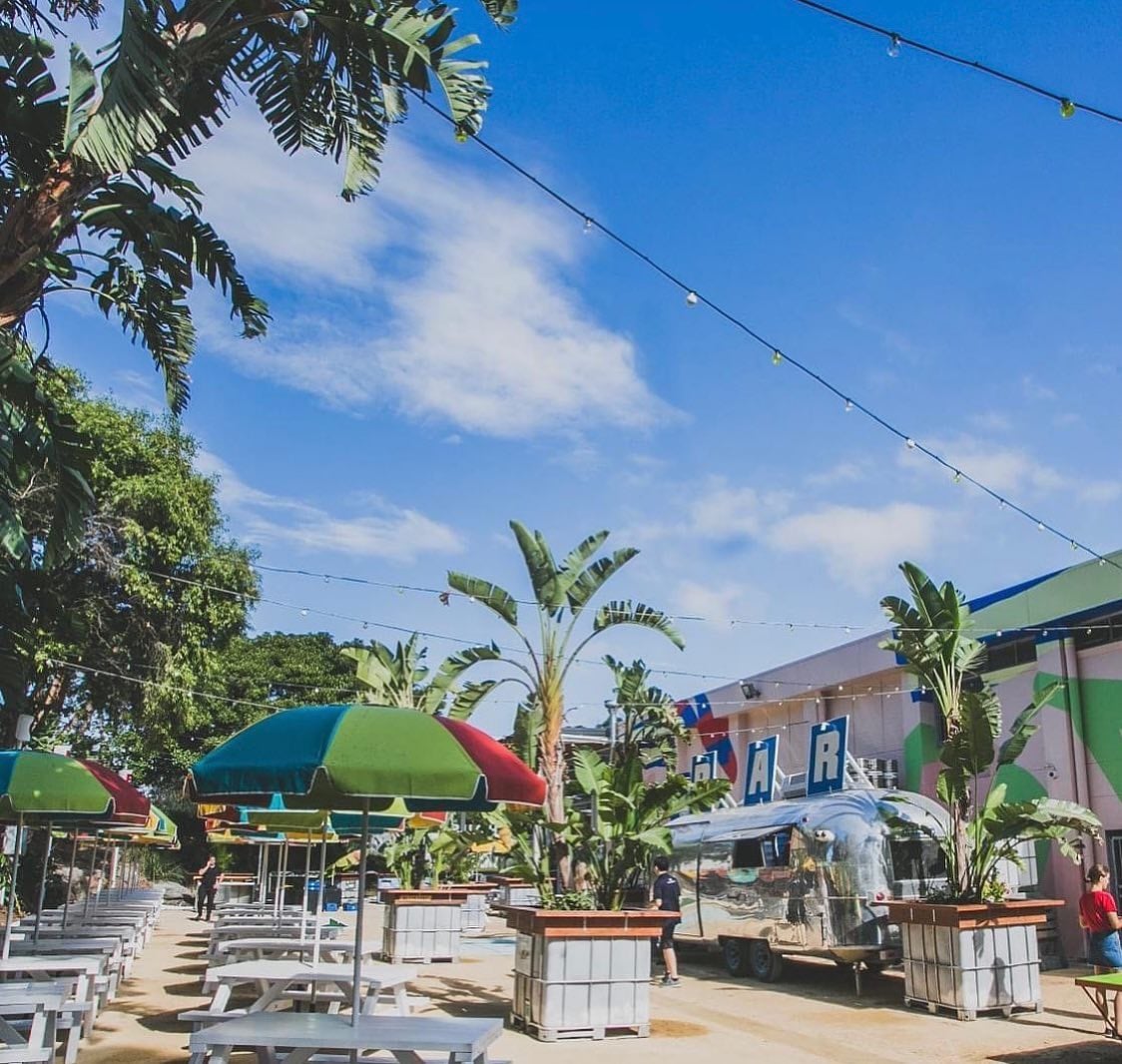
Royal Prince Alfred Yacht Club - RPAYC: Easing Of Restrictions
- All members and guests must continue to check-in with the Service NSW QR code which can be found around the club;
- Members are required to swipe their member card on entry and guests will need to sign in with their Drivers Licence;
- All patrons must show proof that you are fully vaccinated or provide a medical exemption upon entry – the Commodore’s message regarding this club regulation can be seen at: https://mailchi.mp/rpayc/commodoresnotes-586582
Avalon Bowling Club Easing Of Restrictions Notice
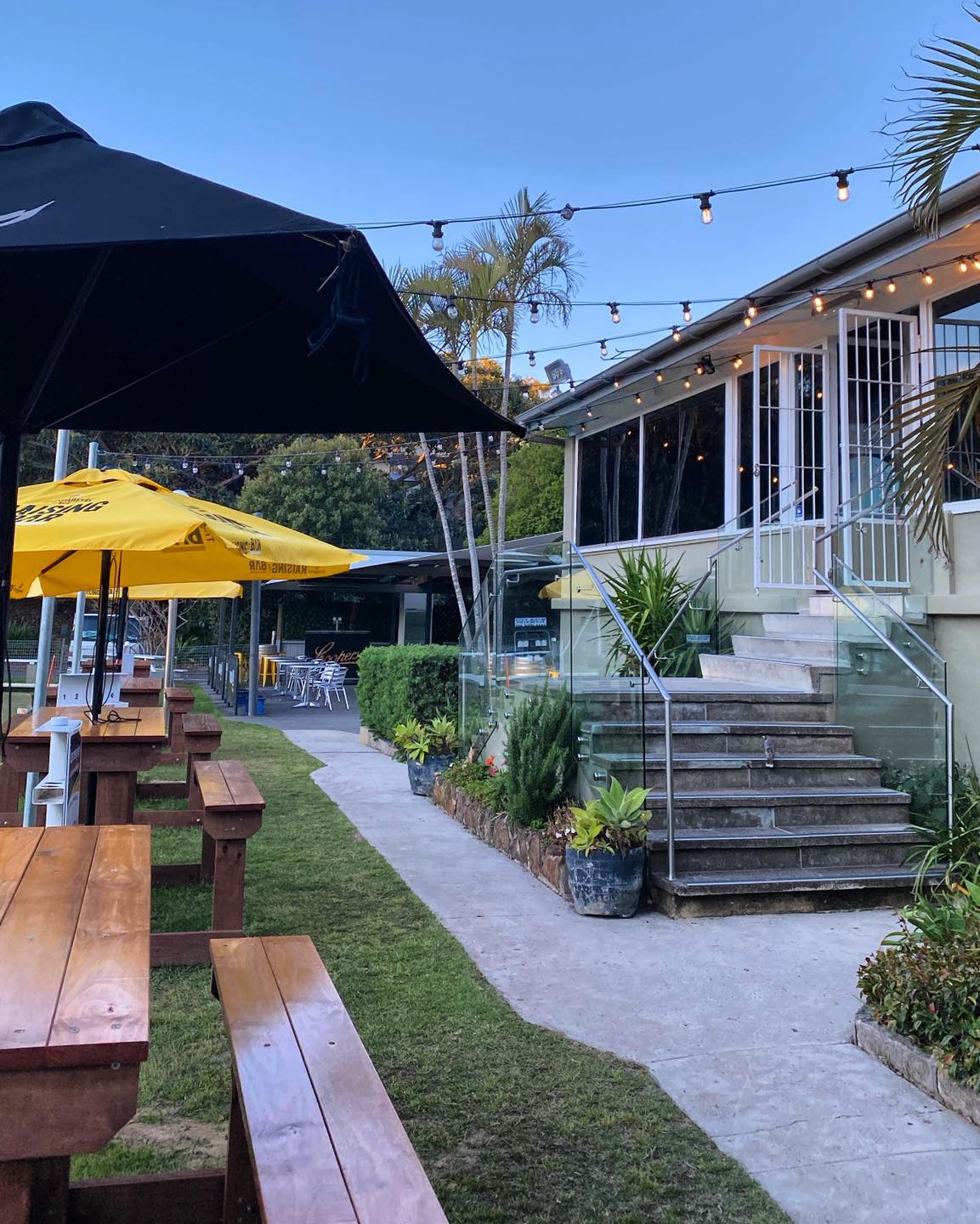
No Scotland Island Dog Race This Year

Palm Beach Golf Club
It is the Palm Beach Golf Club Policy that currently only fully vaccinated patrons are able to enter the Clubhouse. We thank you for your understanding.
Palm Beach Golf Club is now accepting the Dine & Discover NSW $25 dining vouchers. Valid to redeem for dine in food purchases between Monday - Sunday. Vouchers expire on Wednesday 30th June 2022.
One voucher per bill, any remaining balance is forfeited. Services NSW do not offer a return or refund for vouchers.
